Reasons Why You Need Customer Relationship Management In Your ERP System
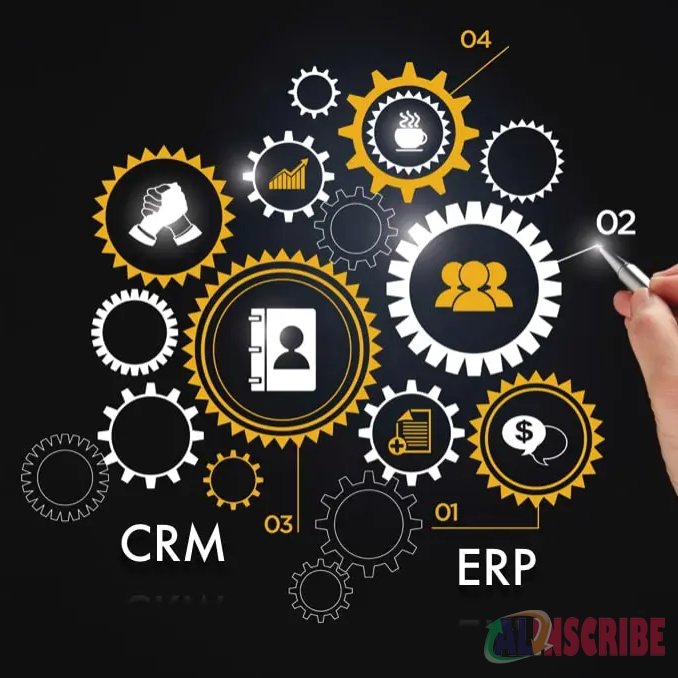
ERP & CRM are two of the most embraced technical tools by businesses in this era. The very first step towards digitization includes installing an ERP and CRM system. ERP and CRM, both of the systems, are of utter importance when it comes to managing business processes smoothly.
In most of the cases businesses adopt to two different ERP and CRM solutions and integrate those together to centralize workflow. While ERP systems manage most of the day-today activities associated with a business, CRM solutions take care of customers’ data, queries, communication and so on.
However, sometimes managing two different systems can prove to be a hassle. It also can result in data silos and unnecessary troubles. In this regard, what you need is one system that can work in both ways. In simpler terms, you need an ERP system with customer relationship management module.
Since ERP is the superset and CRM is subset, you can mostly find a CRM module in an ERP solution but never the other way around. Moreover, possessing customer relationship management in ERP can prove to be much more beneficial than having two different systems.
In this article, we have presented an idea about the advantages that customer relationship management in ERP can bring along with some other valuable information related to both of the systems. Thus, keep reading this article to gain some insights regarding this topic.
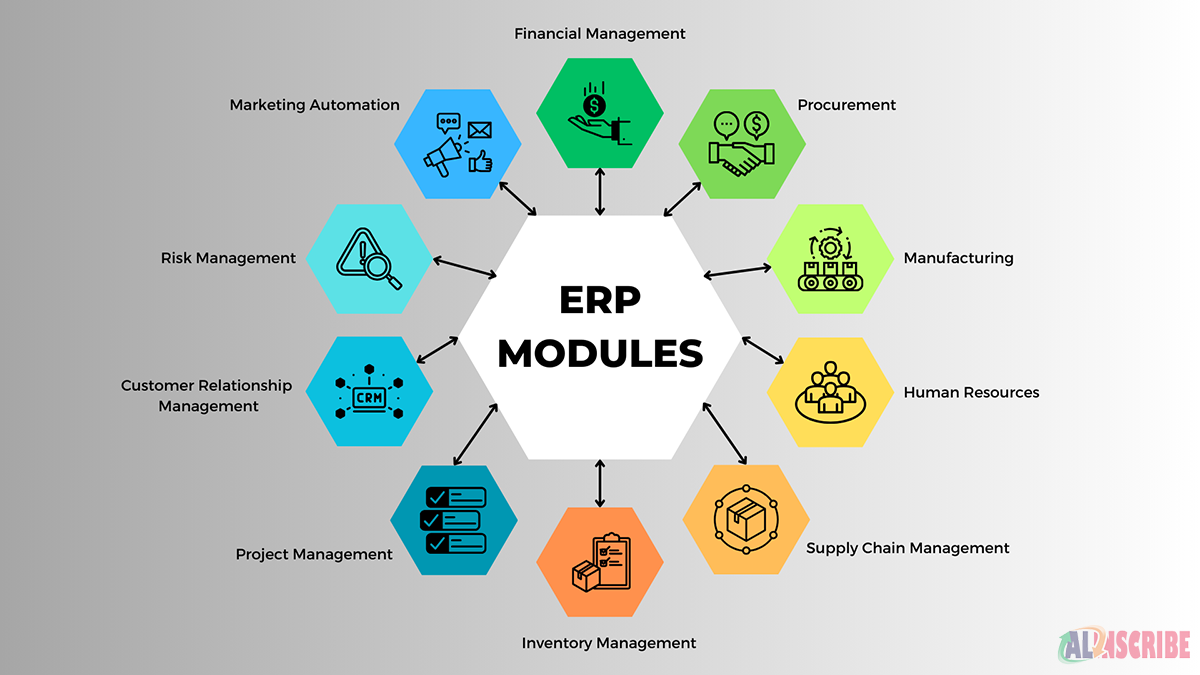
What is an ERP system?
Enterprise Resource Planning, ERP, systems are a kind of software that is capable of managing day-to-day activities of an organization, such as accounting, project management, human resource management, billing and payment management, supply chain management and etc.
The primary work of an ERP system is to tie several business processes together while enabling a smoother and better workflow between the said processes. By eliminating the complicated process of data duplication, ERP systems enhance effectiveness and efficiency of the company.
What is a CRM system?
Customer Relationship management, CRM, is a software solution that is capable of tracking and managing customers’ data, communication and queries while nurturing relationships with the clients and leads. A CRM connects each and every little piece of data and manages everything within a single space.
With the help of a CRM systems your sales and marketing departments can gain important information about a customer and their interaction with your brand or company. In this way you get to understand your customers better and provide them with personalized solutions easily, which is certainly one of the most effective way of ensuring customer retention.
The concept of customer relationship management in ERP
Running a business smoothly is a factor to be associated with several complicated tasks, risks, concerns, communication, integrity and efficiency. Managing customer relationship is one of the most crucial part of a successful business.
Customers are the driving force of an organization. Without proper customer engagement and retention, a business is bound to end up in loss. Thus, taking care of your customers’ needs and preferences and understanding their views towards your products and services are required if you want to do well.
Nevertheless, if you own a small business and a small customer base, then installing a separate CRM system can prove to be an expensive option for you. On the other hand, ERP systems are a must and there is no way you can eliminate that choice. But if there is a software solution that works in both way or can manage customer relationship while integrating all of your business processes together, then it will be an effective solution for you.
ERP and CRM systems are completely different entities that have different evolution history. While ERP systems evolved from MRP systems (Material Requirement Planning), CRM systems evolved from Contact Management System (CMS). Even though these two systems are meant for completely different tasks, a CRM system has to depend on an ERP systems for important information flow.
Additionally, ERP systems also need to access CRM solutions for information related to sales, customers and so on. Thus, both of these systems are undoubtedly dependent on one another. This dependence is what created the concept of customer relationship management in ERP.
ERP systems are a juncture of functionalities that are capable of supporting complex business processes. Since managing customers is one of the most important tasks, it is easy to develop a module dedicated for customer relationship management in ERP systems.
Moreover, this also becomes an accessible option for small and medium sized businesses who cannot afford to use both of the systems at once. This is why the concept of customer relationship management in ERP is so preferred these days and vendors have already started offering ERP systems that are capable of managing customers efficiently.
CRM system statistics
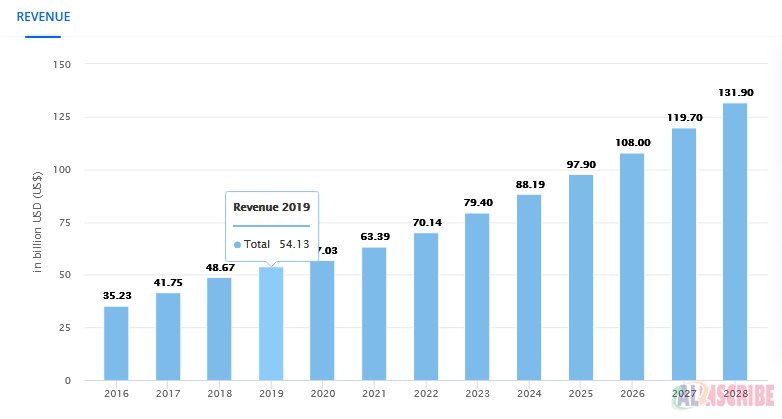
As shown in the above picture, the CRM market has been witnessing a constant growth in revenue collection. In 2016, the generated revenue was $35.23 billion, which is forecasted to increase and become $79.40 billion by the end of 2023. In 2028, this number is forecasted to become $131.90 billion, according to Statista. Hence, the CRM market has a huge potential to grow without a doubt.
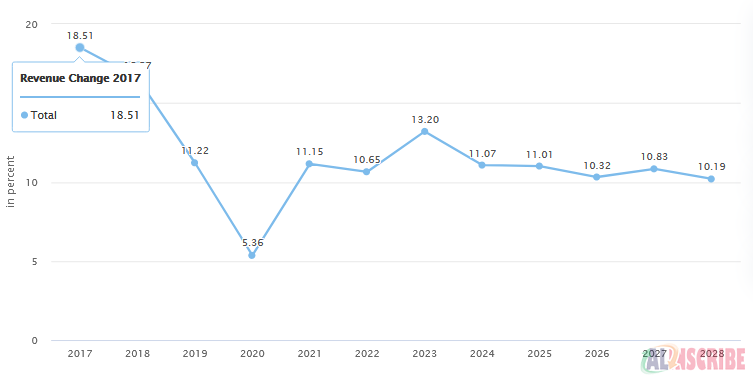
Even though the growth rate (just as the picture depicts) of revenue collection seems somewhat stagnant and even deteriorating, it is still worth to give your business a try if you are looking forward to developing customer relationship management in ERP system.
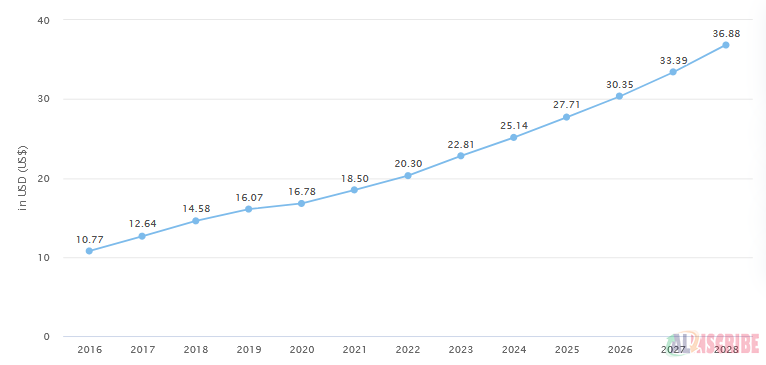
On the other hand, according to Statista, the average spend per employee is $22.81 in 2023, which is only about to grow. Thus, if you invest in an ERP system with a CRM module, you can reduce your cost of CRM investment by reducing the number of users.
Why do you need customer relationship management in ERP?
There are a bunch of reasons why your ERP system needs a dedicated customer relationship management module. Some of the most obvious reasons are discussed below,
Streamlining marketing and sales process
One of the primary work of CRM solutions is to support marketing and sales process. Customer relationship management in ERP can do the same for you. Moreover, you get added benefit as you do not have to input manual effort in extracting the CRM related data from one solution and then transfer it to the ERP system. Since the module is integrated with the ERP system already, all the information are carried automatically, and you can generate reports and invoices based on that. The need of copying data gets eliminated with the help of customer relationship management in ERP.
Centralized customer data management
Customer relationship management in ERP allows centralized customer data management. The CRM module of ERP solutions act like a repository of everything related to the customers. Customer relationship management in ERP stores contact information, preferences, communication and purchase history within one place. Your company managers can leverage these data and make more informed decisions without having to wait for ERP and CRM integration to take place.
Better customer relationship management
Customer relationship management in ERP allows the professionals to monitor customers’ queries and issues a lot faster than a separate CRM system. If the customers are having a technical difficulty, then the customer support individuals have to report it first and then convey the message to the IT team and then they can take action to help the customer out. This is a long process and often customers are unimpressed with longer waiting period.
On the other hand, customer relationship management in ERP conveys the customer queries directly to the IT professions, who offer the customers with appropriate response within a short span of time. This retains customers’ trust on the company and eventually results in increase in customer retention rate.
Strategic reports and analytics
Powerful analytics and reporting is one of the major benefits that you can gain when you integrated customer relationship management in ERP system. Even though CRM system boasts analytics and reporting, those reports and analytics do not integrate the overall performance of your company with integrated with your CRM statistics. This allows you to identify industry trends while monitoring your company performance and identifying weak areas that need to be mitigated for better performance.
The above-mentioned reasons are only some of the most prominent ones. There are more reasons, however, those depend on the nature and kind of your business.
Deciding the workflow of customer relationship management in ERP
Customer relationship management in ERP systems can work effectively when the decided workflow complements your business processes accurately. However, there are some standardized workflows that you can implement when opting for an ERP system with a CRM module.
In this section of the article, we will discuss 7 different workflow automations that can be included the customer relationship management in ERP systems. The workflow automations are provided below,
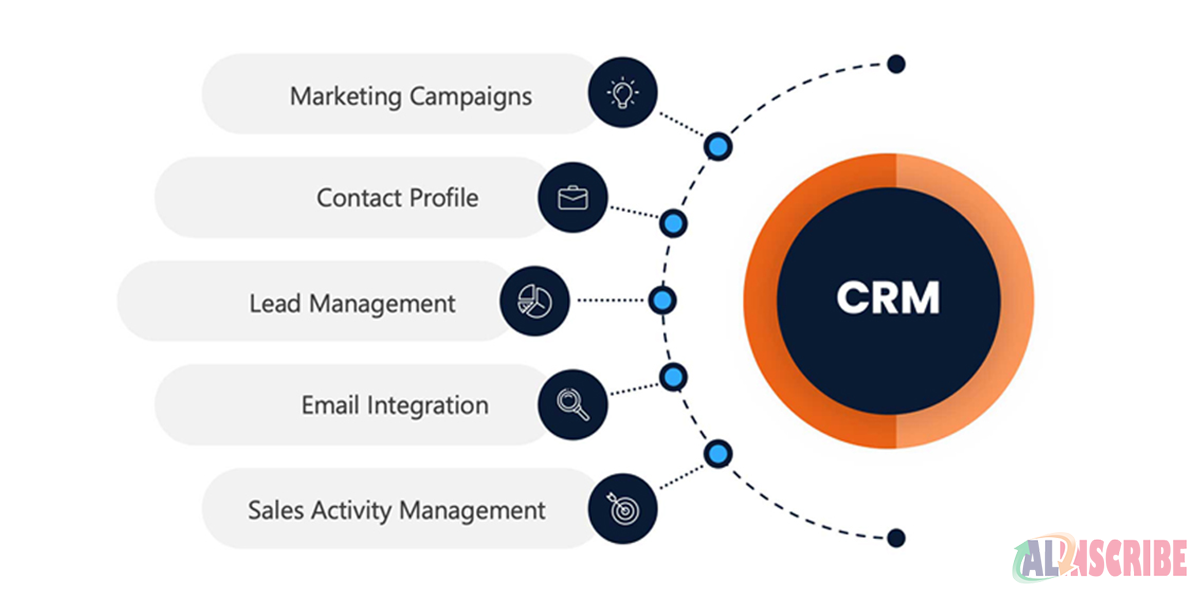
Lead scoring
In lead scoring automation sales executives can effortlessly rank leads based on several criteria. These criteria can include value of the deal, job title, likelihood to be converted and so on. Advanced ERP systems can also have automated scoring systems, which prioritize the leads based on their actions making everything easier for the sales department a little more.
Automation of sales process
Sales process workflow is known for keeping the prospects engaged all along the sales cycle. There are many action items that are usually performed in this workflow, such as sharing demos, letting them know about more dormant opportunities, following up cold leads etc.
Sales process automation workflow is capable of using situational logic for managing huge volumes of leads, guiding prospects and potential customers through sales process and for engaging prospects and customers in order to gain the best possible results.
Account management workflow
Account management workflow is deployed in the case of existing customers. These are designed in a way that allow them to respond in way that matches with the account status effortlessly. In this case, time-based triggers execute a programmed action based on the account status after a certain period of time.
With the help of this workflow, you can establish a sentimental connection between your customer and your product while engaging them better than ever. Offering them help and collecting feedback from then will only enhance your customers’ overall experience effectively and benefit your business altogether.
Since 70% of the customer journey is based on customer experience, account management workflow can actually be directly beneficial for your business.
Customer support workflow
If your customer support is not good enough, then you are more likely to be on the bad side of your customers. According to several reports, 94% of customers tend to recommend your business to others if they like it enough. Hence, impressing your existing customers can be a helpful method of expanding your business to a bigger customer base.
Providing your customers with ticket assignment support can help you in understanding and solving their issues faster and easier. This specific workflow ensures that the issues of the customers are being resolved quickly without having to be passed from department to department. In this way customers retain their trust on your service and pass on the good word effectively.
Lead drip campaign
Lead drip campaigns are designed to send a series of emails to the audience base that your company has based on the actions or in inactions that they have had with your products and services. These series of emails can be designed for actions like conversion, website visit and request for more information regarding your products and services.
Lead assignment workflow
Leads assignment workflow is capable of assigning the leads in the most appropriate SDR based on the bandwidth and expertise that they have. My implementing this workflow, the sales executive can close new accounts and assign opportunities without having to face much confusion.
This also streamlines the process of qualifying new leads while assigning them to the right sales representative.
Customer lifecycle management workflow
Customers’ lifecycle management workflow allows you to assign a stage to your customers based on the connection they have made with your products and services. There are 5 primary stages associated with this lifecycle, these stages are presented below,
- Awareness
- Education
- Purchase
- Post-purchase engagement
- Advocacy
This workflow helps in measuring the customers’ sentiment towards your products and service and suggest engagement strategy based on that.
The above-mentioned workflow can be deployed in the customer relationship management in ERP systems. However, it is important to understand which workflow is better for your company and how that can benefit you prior to implementing one of these.
Conclusion
In conclusion it can be stated that customer relationship management in ERP systems is certainly an important addition. This can prove to be quite beneficial for the companies adopting it. Especially, companies with limited resources can be benefitted by establishing customer relationship management in ERP systems. And if they opt for the right workflow model then they are bound to experience a successful business.
If you want to know more about ERP & CRM related topic or want more insights on ERP CRM integration, then make sure to check out our article Understanding The Importance of ERP CRM integration.
Article Comments
Similar Articles
Articles Search
Sponsor
There are zero sub-categories in this parent category.
There are zero sub-categories in this parent category.
There are zero sub-categories in this parent category.
















